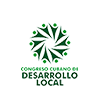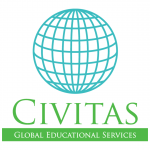Universidad de Granma
Universidad de Granma
La Universidad de Granma (UDG) was founded on December 10, 1976 under the original name Instituto Superior de Ciencias Agropecuarias de Bayamo (ISCAB) by the Ministry of Higher Education to support the agricultural sectors of the province.

University of Granma
Today, UDG consists of eight faculties fully accredited by the National Accreditation Board.
- Economics and Social Sciences
- Agricultural and Forest Sciences
- Computer Sciences, Natural and Exact Mathematics Education – Physics.
- Veterinary Medicine
- Technical Sciences
- Physical Culture
- Basic Education
- Humanities
The National Accreditation Board has designated the notable distinction of “accredited with excellence” to the Faculty of Veterinary Medicine.
UDG’s main educational center is situation in and around the city of Bayamo, on three campuses. The average student body size is 5,600 students taught by 1,360 faculty consisting of 147 PhDs, 669 MAs, and 23 specialists. UDG ensures accessibility to all students within the province with satellite campuses in nine more of its municipalities.
UDG’s core research lines are in Local Development, Agricultural and Nutritional Development, Natural Environmental Resources and Improvement of Higher Education.
The Center for Management and Local Development Studies (CEDDEL) is part of the Faculty of Economics and Social Sciences (FCES). Due to its nature and purpose, it interacts with all colleges of the university and with the local development departments of the Municipal University Centers (CUM), methodologically advising the activities in function of having a greater impact in local development. Despite being subordinate to the FCES, it receives direct support from the Vice-rectorate of Research and Postgraduate Studies for the development of its programs.
The CEDDEL has strong institutional relations with the government, other institutions in the public and private sectors, and the National Association of Economists and Accountants of Cuba (ANEC).
Its staff is integrated with 10 full time professors-researchers and 20 collaborators. Full-time professors include 5 PhDs and 5 with master’s degrees in science.
The CEDDEL was officially approved in July 2010 according to Ministerial Resolution 56 with the mission of contributing to the processes of socio-economic development of Granma territory by conducting scientific research, knowledge management and innovation processes and advising the government and other local actors.
The Local Development Observatory (ODL) begins in 2017 with the mission to provide up-to-date, reliable and organized technical scientific information from various sources on local development and management.
The objectives of the ODL are to:
- Strengthen networks between universities and other cooperation partners for the achievement of high-impact projects
- Select the scientific and technical information necessary to satisfy the informational needs of the scientific community working on local development and its management
- Provide technical scientific information in an organized manner, appropriately distributed to observatory users per their needs
- Disseminate successful academic, social and cultural experiences from research projects and development initiatives
For More Information Contact
DrC. Yisel Vigoa
Director, International Relations
Email: DRI@udg.co.cu



